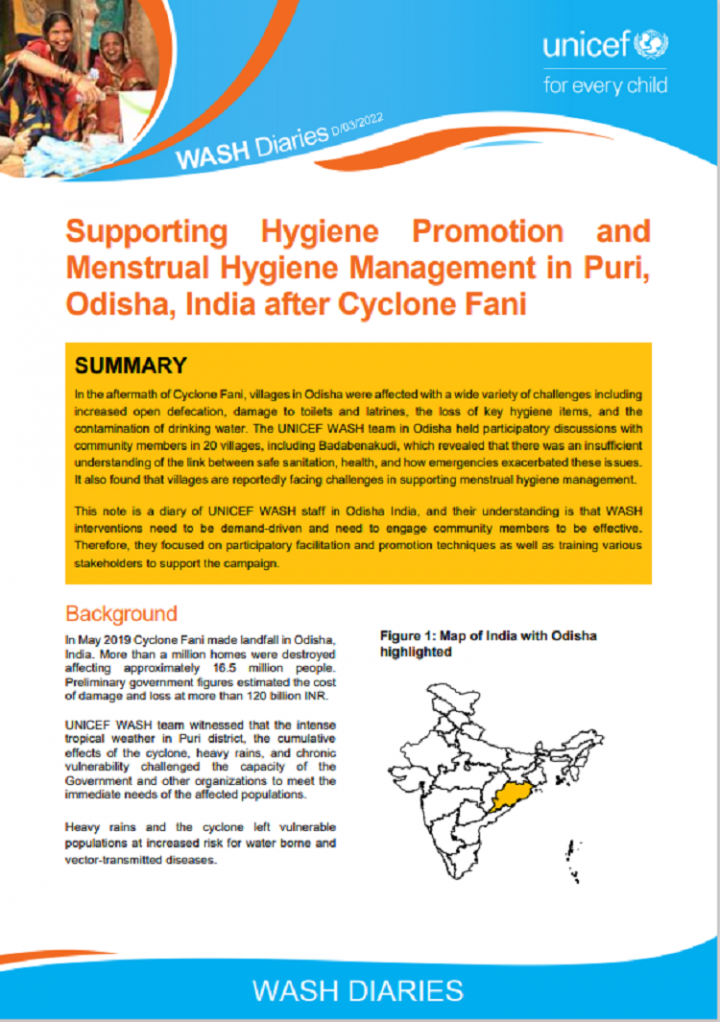
Published in: 2022
Pages: 5
Publisher:
UNICEF
Uploaded by:
SuSanA Admin
Partner profile:
common upload
807 Views
7 Downloads
In the aftermath of Cyclone Fani, villages in Odisha were affected with a wide variety of challenges including increased open defecation, damage to toilets and latrines, the loss of key hygiene items, and the contamination of drinking water. The UNICEF WASH team in Odisha held participatory discussions with community members in 20 villages, including Badabenakudi, which revealed that there was an insufficient understanding of the link between safe sanitation, health, and how emergencies exacerbated these issues.
It also found that villages are reportedly facing challenges in supporting menstrual hygiene management. This note is a diary of UNICEF WASH staff in Odisha India, and their understanding is that WASH interventions need to be demand-driven and need to engage community members to be effective. Therefore, they focused on participatory facilitation and promotion techniques as well as training various stakeholders to support the campaign.
Bibliographic information
(2022). Supporting Hygiene Promotion and Menstrual Hygiene Management After Cyclone Fani. UNICEF
Filter tags
Menstrual Health and Hygiene (MHH) South Asia














